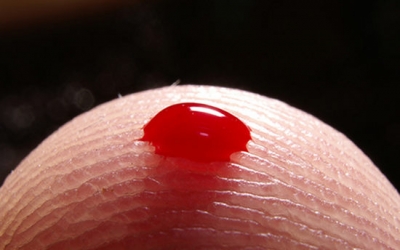- Latest news▼
-
17:35, May 17 WHO updates list of drug-resistant bacteria most threatening to human health

-
08:36, May 17 Gene discovered that plays important role in prostate cancer treatment

-
17:28, May 16 Up to 246 million older people may be exposed to heat risk by 2050 due to global warming

-
11:11, May 16 JARRL: it takes more than 12 weeks of exercise to improve cerebral blood flow

-
08:33, May 16 Cause of sudden death from heart attack is determined

-
18:24, May 15 Journal of Nutrition, Health & Aging: Moderate wine consumption reduces inflammation in the body

-
15:33, May 15 Conjoined twins in Indonesia born fused together like a 'spider' in ultra rare case

-
17:07, May 14 Armenia gets $780,000 grant to fight diabetes complications

-
11:59, May 14 Smart bandage created in Russia to treat wounds based on electrostimulation

-
19:31, May 13 Daily Mail: black beans and walnuts increase life expectancy

-
17:01, May 13 In 2024, 399 cases of measles infection confirmed in Armenia

-
13:14, May 13 Nature Medicine: New genetic form of Alzheimer's disease discovered

-
11:22, May 13 PNAS: Researchers determine how herpes virus penetrates nervous system

-
14:50, May 12 The first person to receive a genetically modified pig kidney transplant dies in the United States

-
18:36, May 11 Mum, 32, almost dies from multiple blood clots after ‘GP prescribed wrong contraceptive pill’

All materials
New device offers hope for early cancer detection

Japanese scientists have developed a device that they say detects most kinds of cancer from a drop of blood in only three minutes.
The device uses a biochip, a sensor comprising multiple tiny test sites. It functions by attracting a faintly luminous substance found in cancer patients, even when the cancer is at a very early stage.
As Japantimes.co.jp reports, known as Proteo, the chip is the result of collaboration between Kobe-based medical device manufacturer My Tech Inc. and researchers from Showa University.
Yuki Hasegawa of My Tech said the technology boasts great accuracy.
“We diagnosed without any errors whether the tumor is benign or malignant in a study of 20 patients,” he said.
Hasegawa said the researchers are accumulating data from various types of cancers, with the aim of making the blood test available a year from now.
Hiroaki Ito, a researcher from Showa University, said the preliminary data suggests the device could be more accurate and effective than existing blood tests.
“Currently, blood testing can only detect around 10 to 20 percent of cancers. In contrast, we are expecting to detect as much as 90 percent,” Ito said.
Ito and Hasegawa said the accuracy derives from the chip’s characteristic of attracting certain nucleosomes, sets of proteins wrapped inside DNA. Nucleosomes occur in healthy individuals, but the chip only attracts those modified by cancer.
The researchers found that the nucleosome emits light. Although dim, the intensity increases as more of the substance accumulates on the chip and it can easily be seen under a fluorescent microscope. This makes it easy to identify visually if the blood is from an individual with cancer.
The nucleosome that is attracted to the chip is prevalent in all types of cancer, including those of the pancreas, stomach and bowel. Together with the use of laser beam, the chip not only detects the presence of cancer but also tries to narrow down the kind.
Moreover, the substance exists even in a cancer’s early stages, the researchers said, allowing “super-early detection.”
“Our technology allows diagnosing much earlier than that, even within one year after they develop,” said Hasegawa.
Follow NEWS.am Medicine on Facebook and Twitter
- Video
- Event calendar
- Archive
- Most read
month
week
day
- In 2024, 399 cases of measles infection confirmed in Armenia 1459
- PNAS: Researchers determine how herpes virus penetrates nervous system 1311
- Daily Mail: black beans and walnuts increase life expectancy 1220
- Nature Medicine: New genetic form of Alzheimer's disease discovered 1201
- Armenia gets $780,000 grant to fight diabetes complications 1158
- Conjoined twins in Indonesia born fused together like a 'spider' in ultra rare case 1068
- Smart bandage created in Russia to treat wounds based on electrostimulation 1066
- Up to 246 million older people may be exposed to heat risk by 2050 due to global warming 701
- Cause of sudden death from heart attack is determined 660
- Journal of Nutrition, Health & Aging: Moderate wine consumption reduces inflammation in the body 641
- JARRL: it takes more than 12 weeks of exercise to improve cerebral blood flow 597
- WHO updates list of drug-resistant bacteria most threatening to human health 494
- Gene discovered that plays important role in prostate cancer treatment 445
- The first person to receive a genetically modified pig kidney transplant dies in the United States 425
- Find us on Facebook
- Poll





